If you love the look of fresh, bright rims, you’ve already noticed how quickly dust, brake dust, and road grime can dull them. Alloy wheels aren’t just for show – they affect handling, weight distribution, and even fuel economy. The good news? Keeping them in top shape is simple when you know what to do and how often.
Most car owners wonder whether weekly washes are overkill. The answer depends on driving conditions. If you commute on city streets with a lot of brake dust, a quick rinse every 5‑7 days will stop corrosion before it starts. For weekend warriors who hit the track or drive on salted winter roads, clean the rims after each outing.
Start with a gentle pressure‑washer or hose to knock loose loose debris. Follow with a pH‑balanced wheel cleaner – avoid harsh acids that can eat the wheel’s finish. Let the spray sit for 2‑3 minutes (just enough for the formula to work, not enough to dry out). Use a soft‑bristled wheel brush to scrub the corners and the valve stem area. Rinse thoroughly, then dry with a microfiber towel to prevent water spots.
Pro tip: avoid using the same sponge you use for the car’s paint. Cross‑contamination can scratch the alloy finish. Also, skip automatic car washes with abrasive brushes; they’re designed for paint, not delicate rims.
Beyond cleaning, many enthusiasts want to boost the visual impact of their alloy wheels. One easy upgrade is adding wheel spacers. Spacers push the tire outward, giving a wider stance and filling the wheel well. Before you install them, know that a proper alignment is crucial – it keeps the car balanced and prevents uneven tyre wear.
If you’re after a deeper black finish, consider a matte powder‑coat. It hides minor scratches better than glossy finishes and adds a sporty vibe. Just make sure the coating is UV‑protected; otherwise, sun exposure can cause fading.
Another popular tweak is swapping out the stock lug nuts for color‑matched or split‑lock versions. They’re cheap, easy to install, and instantly make the wheels pop. For those who crave performance, lightweight forged alloys reduce unsprung weight, improving handling and braking.
Don’t forget the small details: cleaning the valve stems, checking for dents, and tightening lug nuts to the manufacturer’s torque spec (usually around 100‑110 Nm). A loose wheel can cause vibration or, in the worst case, a dangerous failure.
Finally, protect your work. A quick application of a high‑quality wheel sealant creates a barrier against brake dust and road salts. Re‑apply every few months, especially after a thorough wash.
Keeping alloy wheels looking sharp isn’t a chore – it’s a habit. With a regular cleaning schedule, the right products, and a few smart upgrades, your rims will stay bright, safe, and stylish for years to come.

Learn how to tell alloy and steel wheels apart by weight, finish, sound, and design. Avoid costly mistakes when buying, replacing, or upgrading your car's wheels.
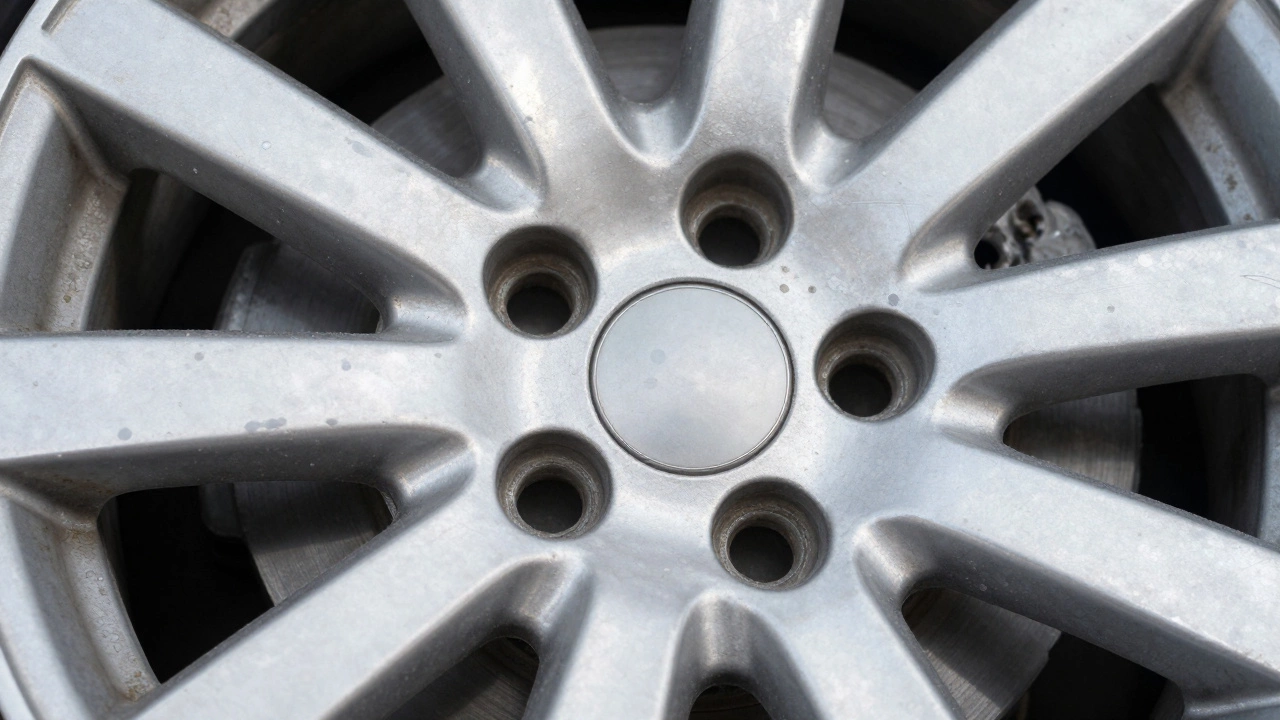
Alloy wheels don't need to be painted-most just need cleaning and polishing. Learn when painting is worth it, what alternatives work better, and how to avoid costly mistakes.

Magnesium wheels are illegal on public roads because they can ignite and burn uncontrollably during crashes, posing deadly fire risks. Learn why they're banned, what alternatives exist, and how to spot fake ones.
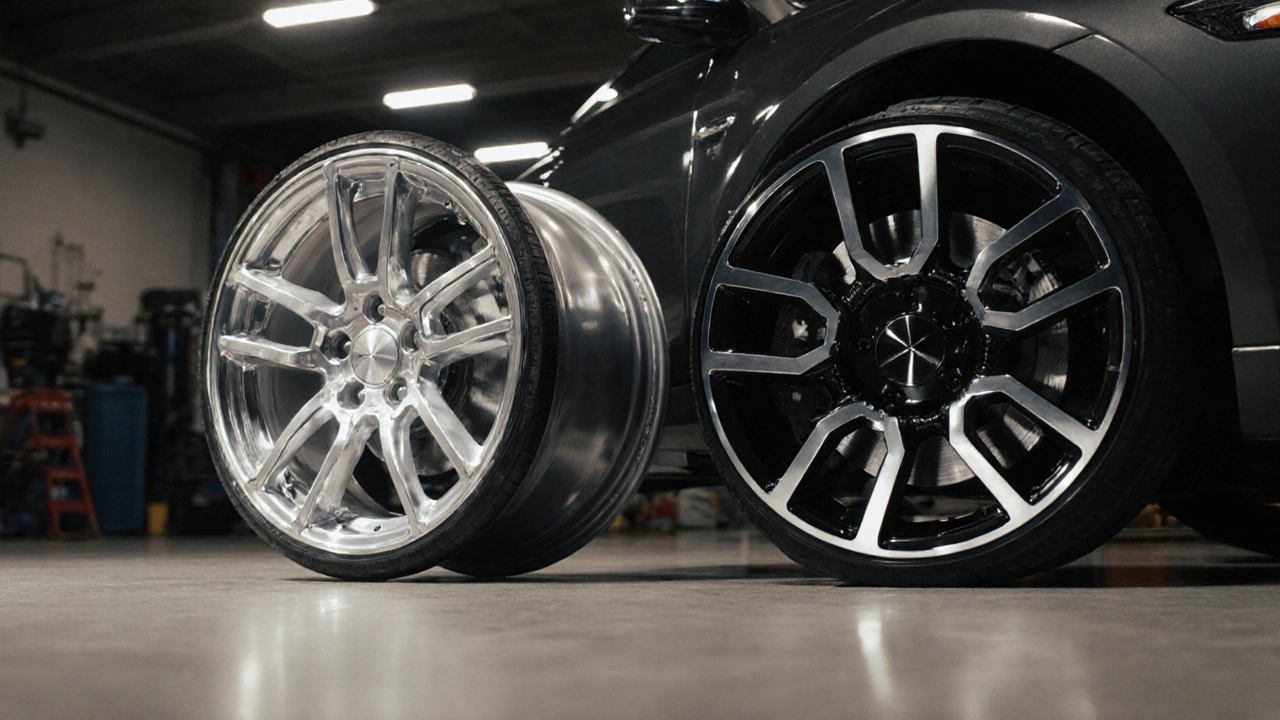
Discover the pros and cons of aluminum versus alloy wheels, covering weight, strength, cost, corrosion resistance, and brake cooling to help you choose the best fit for your vehicle.

Are wheel choices leaving you puzzled? Dive into the world of alloy vs. regular wheels as we explore their distinctions. Understand why your driving experience might shift with different wheels. Get tips on choosing the best set for your vehicle. By the time you're through, you'll be rolling with confidence.

Considering an upgrade to alloy wheels? This article explores what's behind the hype. From aesthetics to performance benefits, alloy wheels promise more than just a stylish ride. Learn about their impact on fuel efficiency, handling, and even how they can potentially increase your vehicle's value. Discover whether the sparkle and advantages justify making the switch.

Alloy wheels often come with a hefty price tag, leaving car enthusiasts wondering why. This article explores the factors contributing to their cost, including materials, manufacturing, and market demand. Uncover why these wheels are a popular choice despite their expense. Delve into tips for making a cost-effective purchase and understand the benefits that justify their price.
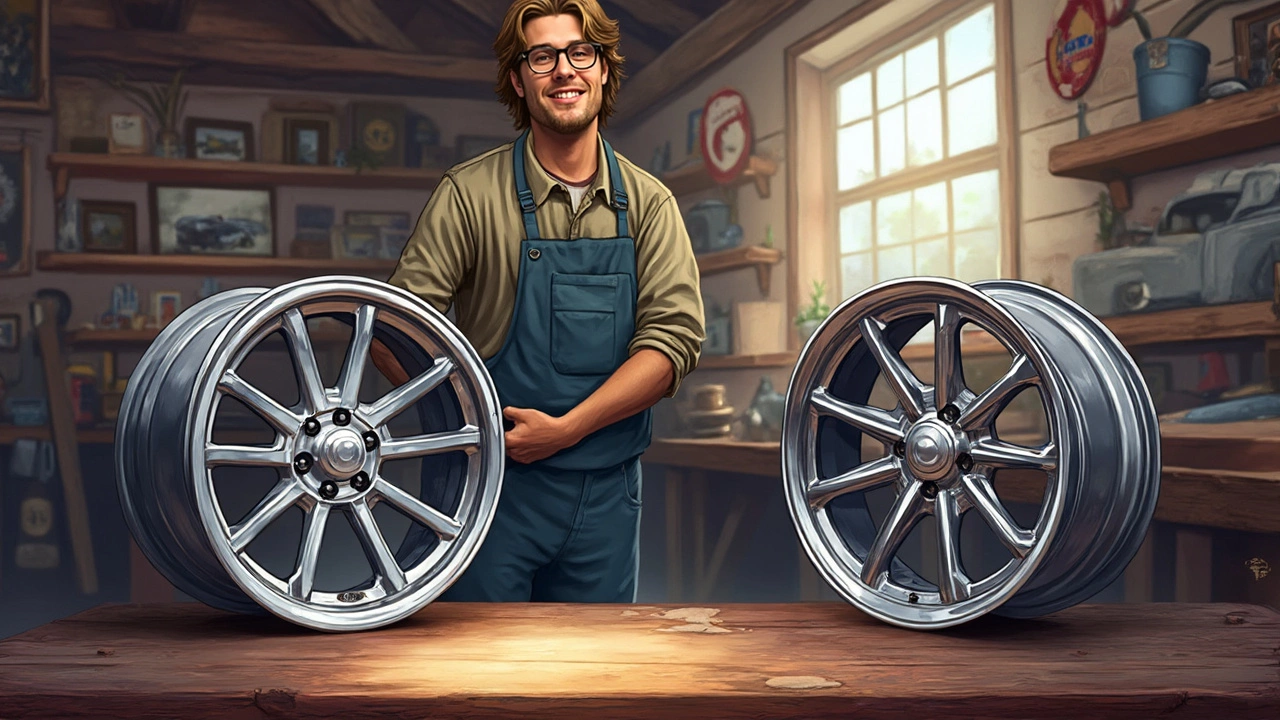
Deciding between alloy wheels and normal wheels can be tricky. Alloy wheels are known for their sleek appearance and performance benefits, while normal wheels typically offer durability and affordability. This article breaks down the key differences, diving into details such as weight, cost, and maintenance, helping you make an informed choice for your vehicle.
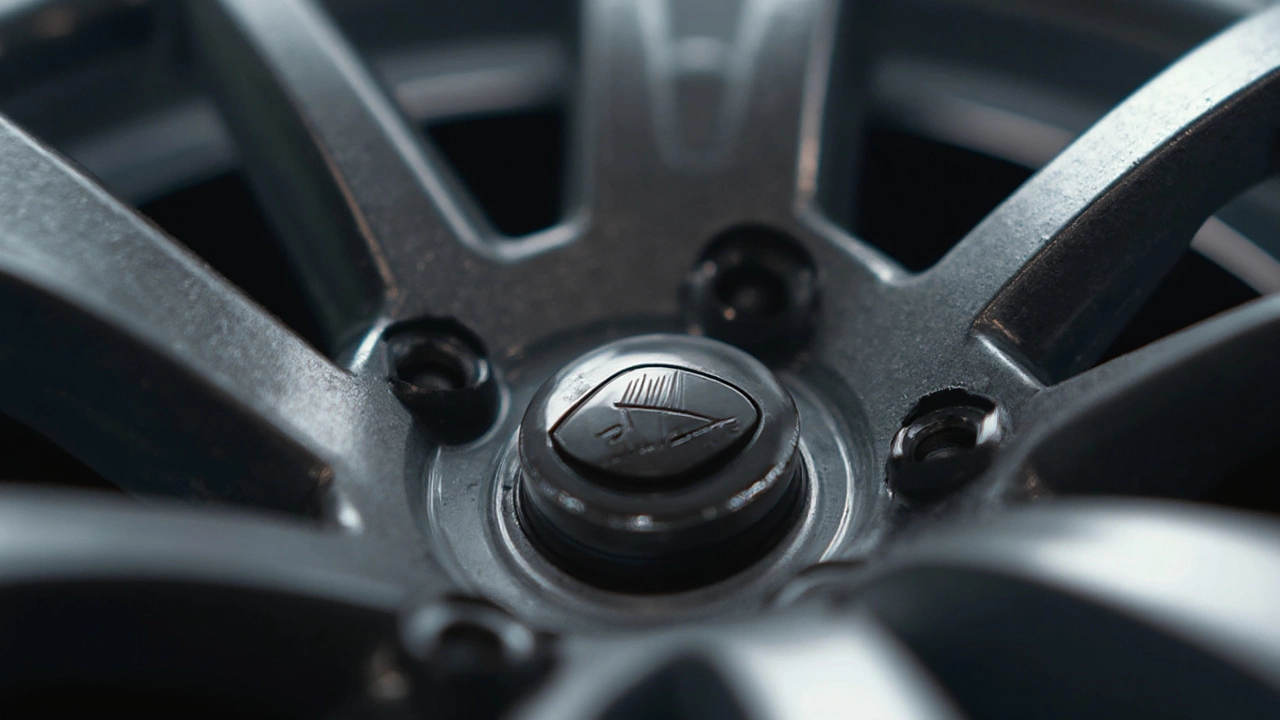
Determining whether your rims are aluminum or alloy might seem daunting, but it's actually simpler than you think. This article guides you through practical steps to differentiate between the two, highlighting key characteristics of each material. You'll learn about common methods used by enthusiasts and professionals alike, without needing specialized tools. Plus, discover some interesting tidbits about rim materials and why knowing the difference matters.
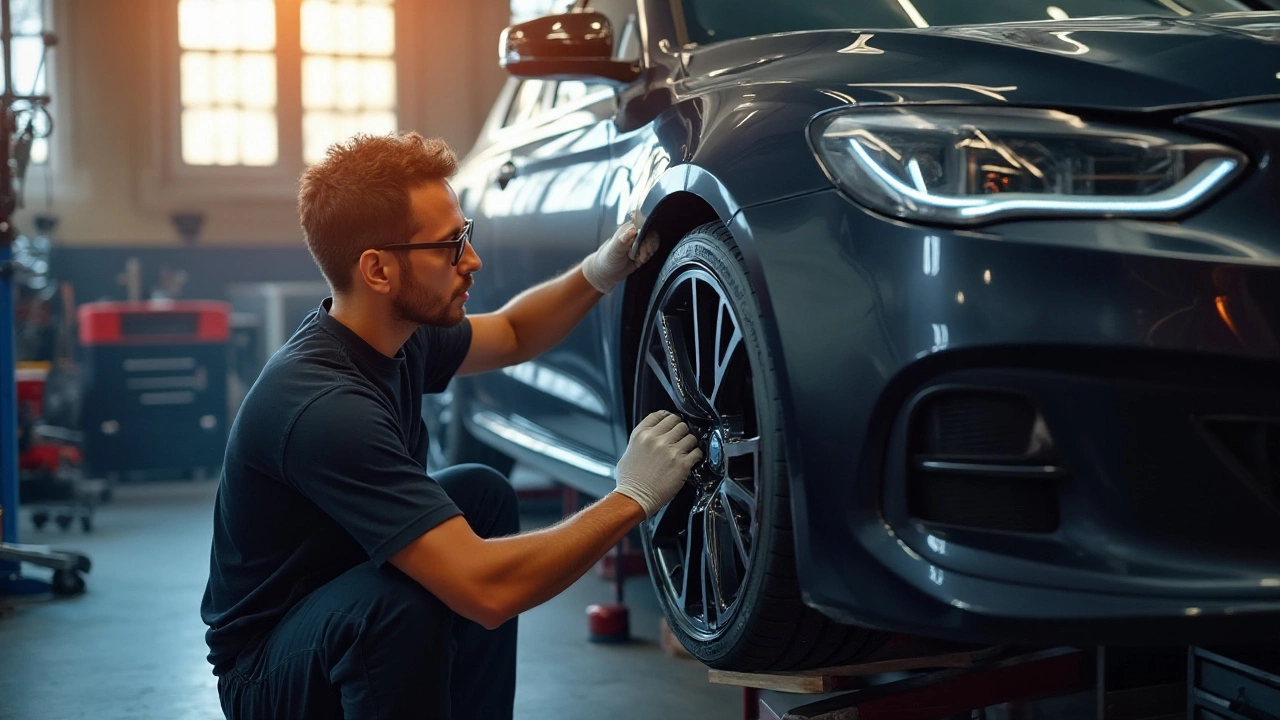
Refurbishing an alloy wheel is a popular process that can restore the appearance and performance of your car's wheels. This detailed guide will cover how long it typically takes, the various steps involved, and some helpful tips for ensuring a successful refurbishment. Whether dealing with curb damage or corrosion, understanding the refurbishment process can save you both time and money.
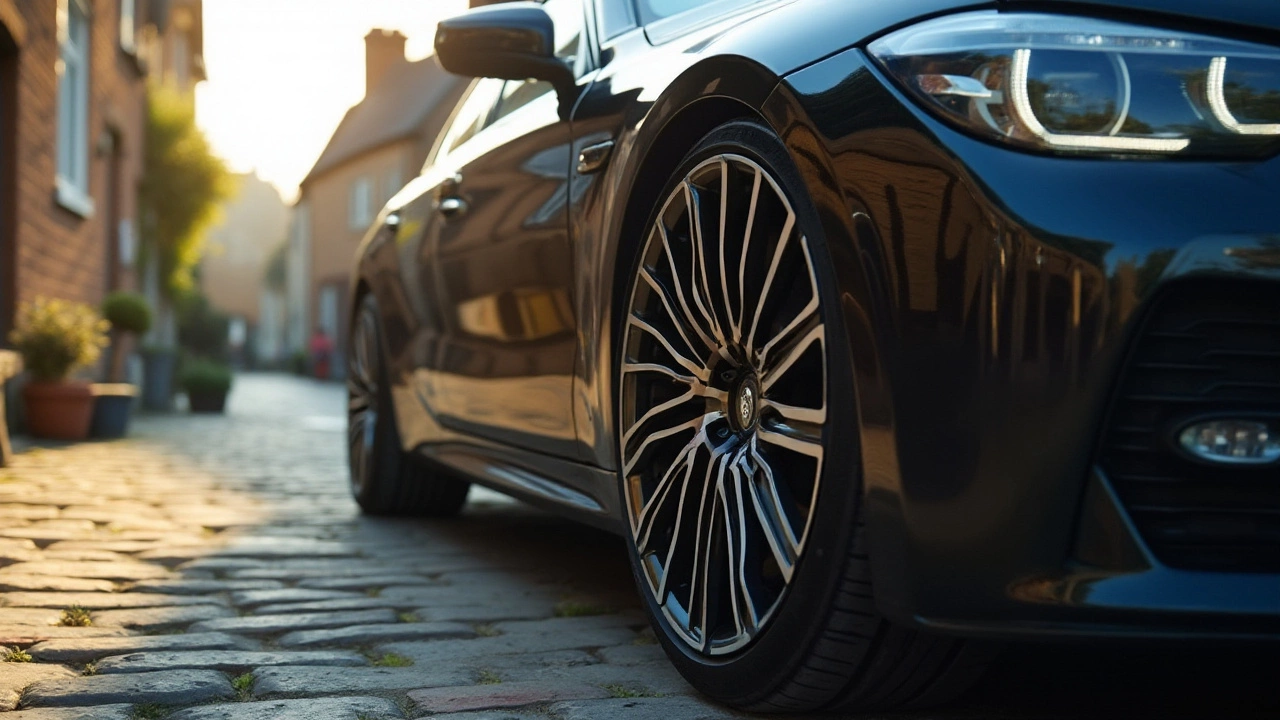
Alloy wheels have become a popular choice for many car owners due to their performance and aesthetic benefits. This article explores what alloys in wheels mean, how they differ from traditional steel wheels, and the advantages they offer. Learn about the materials used in alloy wheels, their impact on vehicle performance, and tips for maintenance and care. Discover why alloy wheels could be a worthwhile addition to your car.

Considering alloy wheels for your car? These stylish wheel alternatives don't just enhance your vehicle's appearance; they offer significant performance benefits too. This article explores the advantages of alloy wheels, potential downsides, and what to consider before making a purchase. Learn how alloy wheels can affect driving dynamics and vehicle maintenance. Whether you're a car enthusiast or just looking to upgrade, this guide will help you decide if alloy wheels are worth the money.